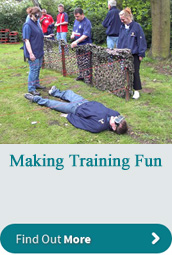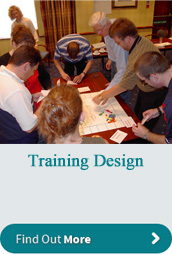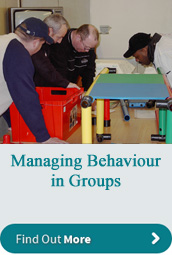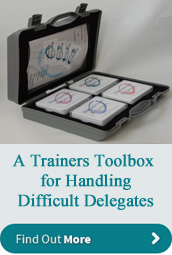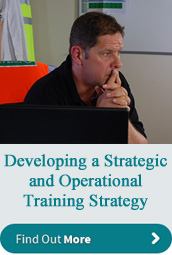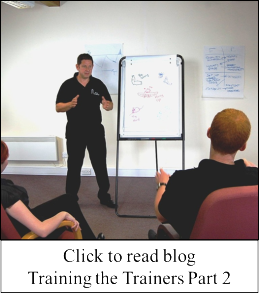What is the Purpose of a Train the Trainer Course?
Our Train the Trainer courses are essential for enabling you to design and deliver effective training sessions. Training is not just about transferring knowledge from the trainer to the learner. In fact, showing Powerpoint slides and reading them to the learners does not trigger or stimulate any of the learning processes in a person.
In our Train the Trainer courses we will train your trainers to engage with their learners and facilitate the learning so that learners use their brains to be able to develop their skills and attitudes they need to carry out their work effectively.
What is a Train the Trainer Qualification?
The Certificate in Training and Development is a professional qualification awarded by the Institute of Training and Occupational Learning (ITOL). To achieve this qualification you will be able to show that you have been professionally trained by us to the Institute Standard and that you will use the psychology of how people learn and other techniques to enable your learners to develop their skills, attitudes and behaviours.
What Specific Train the Trainer Skills Can I Develop?
Alongside the Certificate in Training and Development there are numerous areas where you can enhance your skills. Below are some of the more popular options. We offer courses with standard content or, for a more effective approach, as tailored programmes to meet your specific needs.
Why is it important to be professionally trained?
Becoming a Professional trainer is crucial for developing the necessary skills and understanding to deliver effective training. Our comprehensive Train the Trainer courses should cover several key areas:

Learning psychology
Being able to apply the psychology of how people learn is a basic requirement for creating and delivering effective course content.
Motivation techniques
People need to be motivated to learn. If they cannot see any value in the learning, then they are unlikely to take it on board and do anything with it in their workplace.
Group dynamics
If you are training more than one individual at a time, then you need a working knowledge of group dynamics and how to manage them effectively.
Managing behaviour
Learners bring their behaviours, mind sets, issues and baggage into the training room with them. You need to be able to manage a multitude of behaviours positively and effectively.
Course design
Your course design is critical. How can you build flexibility into your sessions? What strategies can be used to cater to diverse learning styles? How can you enable people to motivate themselves throughout the session?
Behavioural objectives
Behavioural objectives contain measures so that you are able to identify if the learners have met those objectives by the end of the session.
Assessment design
Your assessment is the direct measure back to the behavioural objectives.
Feedback
Although feedback is essential, it can be challenging when a person is falling short of the required standard.
A chance to “have a go”
People always need an opportunity to try out the learning in a safe environment.
Course Design
Creating and delivering high-quality training is a challenge that requires attention to different learning styles and creative delivery methods. A well-designed course equips you with the skills to develop engaging training sessions.
Research shows that active participation enhances learning. Our Train the Trainer courses emphasize using varied techniques to stimulate learners’ minds and encourage independent thinking. Passive learning, such as simply reading or listening, is ineffective. Learners must actively engage, reflect, and apply their knowledge.
Train the Trainer Course Options
Explore a wide range of courses and qualifications designed to meet all requirements, from standard programs to tailored bespoke courses. Choose from numerous qualifications offered in partnership with the Institute of Training and Occupational Learning (ITOL).
Click here for more information

Flexible Course Options
Choose the format that best suits your needs and schedule:
Face to Face
Our Train the Trainer courses can be delivered in a face-to-face setting by a seasoned trainer, ensuring a dynamic and interactive learning experience.
Online Course
You can complete your full Certificate in Training and Development as an online course, which means you can work on it at your own pace to suit everything else in your life. Upon completion of the course programme, you will become a fully qualified professional trainer and be able to use the letters MITOL (Member of the Institute of Training and Occupational Learning) after your name.
Bespoke Courses
We can tailor our Train the Trainer course to your specific needs, empowering you to develop highly effective trainers within your organization.
Call us now on +44 (0) 1933 227 695 to talk about a tailored bespoke course for your organisation. Alternatively, complete the enquiry form on our Contact Us page and we will get back to you.
Virtual
Equip your team remotely with our virtual Train the Trainer course, led by an expert facilitator, for a convenient and engaging learning experience.
Some additional links for you:
With all our train the trainer courses, you will receive 12 months email and telephone support.
Read our Case Studies section to find out what we have achieved in previous courses.
A Typical Train the Trainer course
A good start for a trainer is to learn the basics of putting together a training session and delivering this session interactively. Here is a 2 day course which covers all the key areas of trainer training.
Blogs to Read
Check out our series of blogs which look at all aspects of train the trainer. We appreciate your comments. Click on the Blog link at the top of this page for all our blogs.
Training the Trainers Blog
Part 1
This introductory blog explores how people become trainers and identifies some challenges created as a result.
Part 2 – How Should We Train the Trainers?
Find out how we should train trainers, we have identified the 8 key behaviours together with their definitions.
Consultancy and individually tailored coaching and development for all areas is only a phone call away. Please contact us now.


